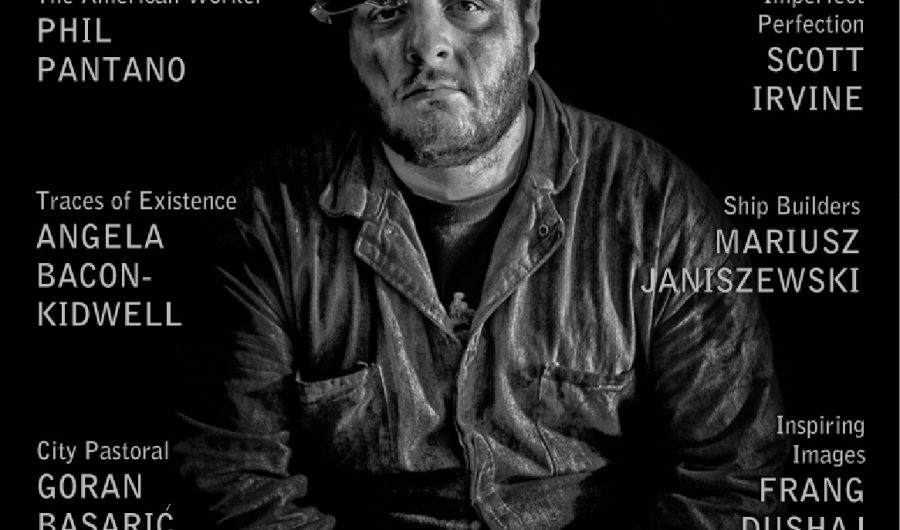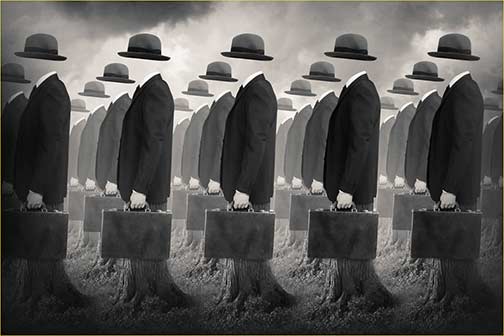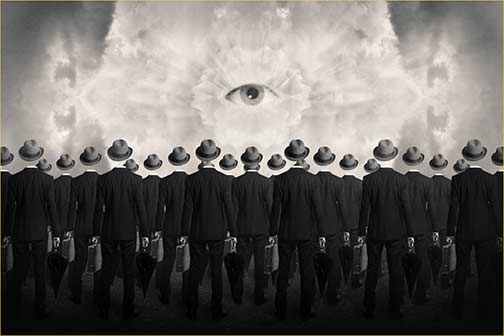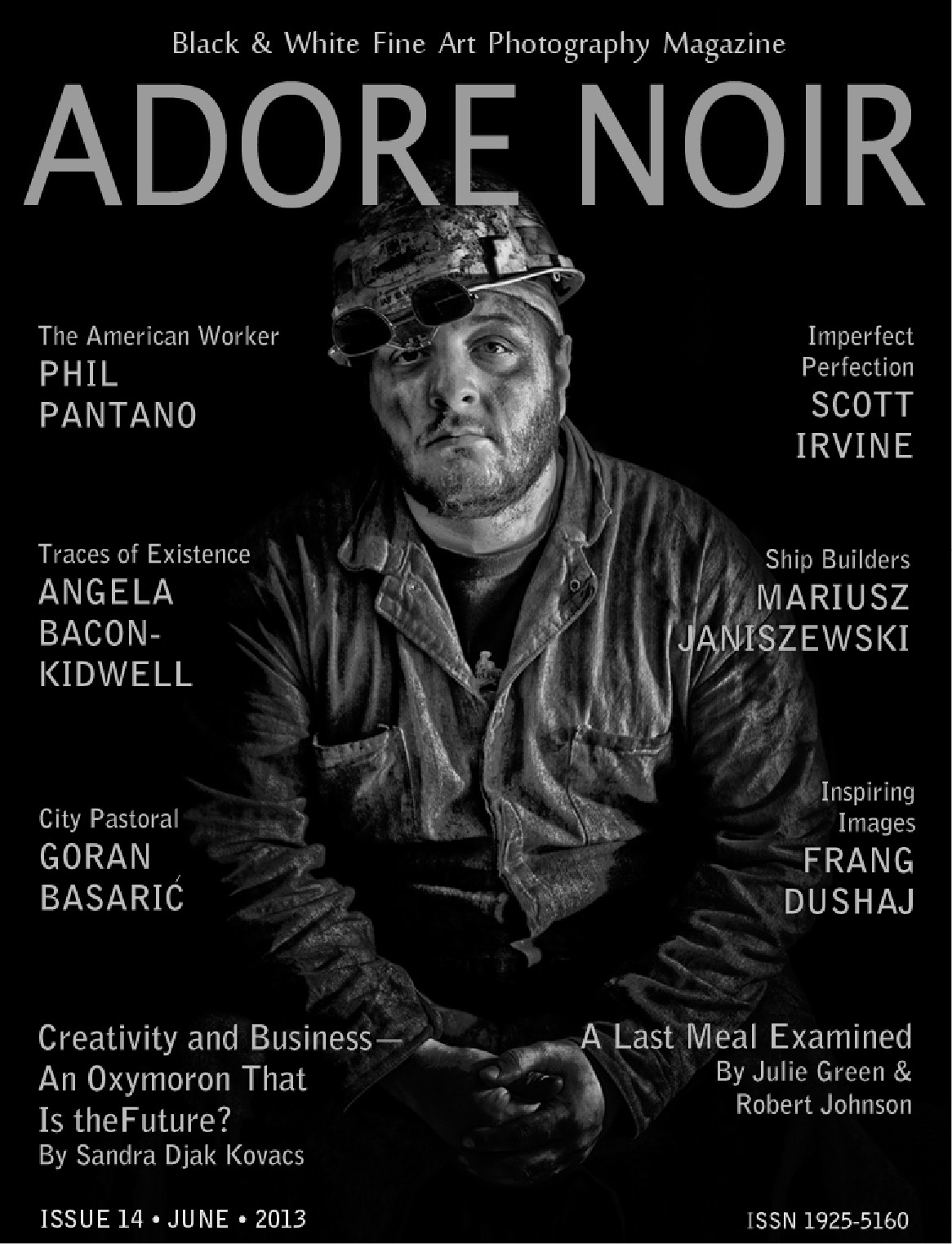

By Sandra Djak Kovacs
Reprinted with Permission from Adore Noir Magzine
Timemagazine tells us that 91% of Americans believe that Creativity is one of the most important traits in their personal life. Anita Hamilton ofTimemagazine recently spoke with Bruce Nussbaum the author ofCreative Intelligence.Nussbaum “argues that creativity is an undervalued skill that anyone can cultivate. Not just for artists and musicians, he argues, creative intelligence – or CQ for short- is what separates the winners and losers of the business world as well.” Creativity is becoming the new buzz in business. Does this mean businesses of all kinds will be courting artists to come join them? An artist, after all, is as creative as they come. Would an artist do better to hedge their bets on a financially viable career and follow their head into business rather than their heart into the arts?
Census data from 2005 in the US cited by Sam Roberts in the New York Times article, “A 21st Century Profile: Art for Art’s Sake, and for the U.S. Economy too,” indicates that “nearly two million Americans said their primary employment was in jobs that the census defines as artists’ occupations…” The data in the article also reveals that “[a]bout 13 percent of people who say their primary occupation is artist also hold a second job-about twice the rate that other people in the labor force work two jobs,” and that “[t]hey are more highly educated but earn less than professionals with the same level of schooling.” This tells us that artists are at work everywhere hiding in respectable clothing and everyday jobs trying to navigate their way in the world as both creators and providers. Sometimes and often the art does not pay the rent. The census data proves this, artists need second jobs 13% more than others who do not call themselves an artist. And so we have the artist who must remove his piercings and go into work every day dressed as a businessperson, the poet who must serve meals and deep fry French fries and the sculptor who paints houses during the day.

© Tommy Ingberg
“The American Management Association,” as reported by Paul Shread at time.com, under the article, “Four Traits of Great Employees, “…value what the group calls the “Four Cs”: Critical thinking, communication, collaboration and creativity.” Perhaps a great argument to hire an artist. This group also thinks that these “ ‘Four Cs,’ will become even more important in the next few years.”Timemagazine was also most recently a part of the 2013 Creativity Conference where panelists, Bill Clinton among them, discussed how to “…harness the power of a workforce that is moving from industrial manufacturing to the tapping of the creative mind.” The answer is clear; businesses need to hire an artist.
Ronald Katz asked, “Would You Hire Meryl Streep?” in an article for ere.net, a recruiting community. He argues that most recruiters would probably pass by a candidate over fifty who hasn’t been actively employed, for as of March 2012, “it has been 2 years since [Meryl Streep’s] last movie came out.” And she is an artist. Katz says that “To be successful you need to hire the right combination of people.” According to the “Four C’s” one of them should be at least ¼ creative.
Mihaly Csikszentmihalyi has “devoted 30 years of research to how creative people live and work,” this quote is from his article at psychologytoday.com titled “The Creative Personality.” He says: “Perhaps the most important quality, the one that is most consistently present in all creative individuals, is the ability to enjoy the process of creation for its own sake. Without this trait, poets would give up striving for perfection and would write commercial jingles, economists would work for banks where they would earn at least twice as much as they do at universities, and physicists would stop doing basic research and join industrial laboratories where the conditions are better and the expectations more predictable.” The truth is many poets do not give up but need to either “write commercial jingles,” or work as a waiter to pay the bills because their poetry is not. Odds are if you are a poet you are not putting that on your resume unless you are applying for a Writer-in-Residence position. The recruiter who is looking through applications may completely miss the fact that you are clearly creative and, according to Nussbaum, someone who can help your company win.
In the same article quoted above, Csikszentmihalyi also says: “Despite the carefree air that many creative people affect, most of them work late into the night and persist when less driven individuals would not.” Creative people are dedicated. Artists hold two jobs, two times more than others who do not call themselves an ‘artist.’ The artist to survive economically has to keep pushing forth, has to be resilient in the face of problems and rejection, coming up with new ways and new ideas to stay relevant and stay working. This trait is remarkable and would probably help move a regular Joe through their week with more oomph than the term “the daily grind,” conjures up. Of course, the creative who “work[s] late into the night,” may not be the one a company wants to hire unless they are working on a company project. As “the daily grind,” is a whole lot worse when an artist is torn from his passion, for at least eight hours a day, working for someone else’s vision rather than their own.
This is the flaw. You cannot just hire someone who is creative because they are creative. They need to be passionate about whatever area of the business world you are looking to hire for. The artist can hide in sheep’s clothing for only so long. Soon they will divulge that they need more time off to work on their masterpiece and will ask for a sabbatical. Hiring the right person is key. And as far as profitability in the business world goes, as long as businesses are only looking to make the next sale in order to increase revenue along with decreasing costs in order to bump share prices we are going to continue to live in a world where artists “are more highly educated but earn less than professionals with the same level of schooling.” A world where artists “work late into the night,” and work two jobs to make ends meet.

© Tommy Ingberg
Simon Kuper fromFTmagazine (Financial Times) in an article from September 2012 argues that many “members of the ‘creative class’ dream of making the leap from hackery to art. Many of them talk about it in the pub. A few actually do the leap…Leaps like these feed fantasies in office cubicles everywhere. However, most dreamers should not leap. ..The fantasy of yourself as an artist works best as a fantasy. It provides a pleasing back-story to tell yourself and others. On paper you might be an accountant, but your authentic self is Emily Bronte…Staying put saves them lots of unhappiness. The hack’s life is fairly easy. Your work just has to be good enough. You don’t have to put your soul into it and aim for perfection. You know how to do the job, you hand it in and they pay you.” Every company’s dream employee! Of course, the degree to which Kuper is serious is not entirely clear, as he himself is a writer writing a regular column. Something many a writer who is working on their great novel would probably much rather be doing than working at the gas station.
Meryl Streep is quoted as saying: “Integrate what you believe in every single area of your life. Take your heart to work and ask the most and best of everybody else, too.” If you are the “hack” in Simon Kuper’s article that might be a bit difficult. Csikszentmihalyi says: “Creativity is a central source of meaning in our lives. Most of the things that are interesting, important, and human are the result of creativity. What makes us different from apes –our language, values, artistic expression, scientific understanding, and technology—is the result of individual ingenuity that was recognized, rewarded, and transmitted through learning.” We need to recognize our artists. We clearly need to pay them more and we need to let them come to work with their creativity in tow, perhaps celebrating their personal work while giving them the breath to expand upon the business ideas your company has brewing. True creativity can only be nurtured when it is authentically recognized. 91% of Americans believe that Creativity is one of the most important traits in their personal life. Why would they not think the same in their professional ones?
Meryl Streep is also quoted as saying: “Enough people write about me every day without even interviewing me.” Guilty. But maybe, just maybe if I persevere and eventually write that movie script that I have been meaning to write I will get to interview Meryl Streep. I just have to keep creating. Tap, tap, tapping that creative mind. It is the way of the future.
June, 2013
Sandra Djak Kovacs is a freelance writer working in Vancouver, BC
Article courtesy ofAdore Noirmagazine,www.adorenoir.com

Lorem ipsum dolor sit amet, consectetur adipiscing elit, sed do eiusmod tempor incididunt ut labore et dolore magna aliqua. Ut enim ad minim veniam, quis nostrud exercitation ullamco laboris nisi ut aliquip ex ea commodo consequat. Duis aute irure dolor in reprehenderit in voluptate velit esse cillum dolore eu fugiat nulla pariatur. Excepteur sint occaecat cupidatat non proident, sunt in culpa qui officia deserunt mollit anim id est laborum.
Lorem ipsum dolor sit amet, consectetur adipiscing elit, sed do eiusmod tempor incididunt ut labore et dolore magna aliqua. Ut enim ad minim veniam, quis nostrud exercitation ullamco laboris nisi ut aliquip ex ea commodo consequat. Duis aute irure dolor in reprehenderit in voluptate velit esse cillum dolore eu fugiat nulla pariatur. Excepteur sint occaecat cupidatat non proident, sunt in culpa qui officia deserunt mollit anim id est laborum.
Lorem ipsum dolor sit amet, consectetur adipiscing elit, sed do eiusmod tempor incididunt ut labore et dolore magna aliqua. Ut enim ad minim veniam, quis nostrud exercitation ullamco laboris nisi ut aliquip ex ea commodo consequat. Duis aute irure dolor in reprehenderit in voluptate velit esse cillum dolore eu fugiat nulla pariatur. Excepteur sint occaecat cupidatat non proident, sunt in culpa qui officia deserunt mollit anim id est laborum.
Lorem ipsum dolor sit amet, consectetur adipiscing elit, sed do eiusmod tempor incididunt ut labore et dolore magna aliqua. Ut enim ad minim veniam, quis nostrud exercitation ullamco laboris nisi ut aliquip ex ea commodo consequat. Duis aute irure dolor in reprehenderit in voluptate velit esse cillum dolore eu fugiat nulla pariatur. Excepteur sint occaecat cupidatat non proident, sunt in culpa qui officia deserunt mollit anim id est laborum.
You May Also Enjoy...
Meeting Moroccan Berbers (Rediscover)
Morocco is like walking into another world for many people. In the big cities, one had to be discrete in how and who one photographed


